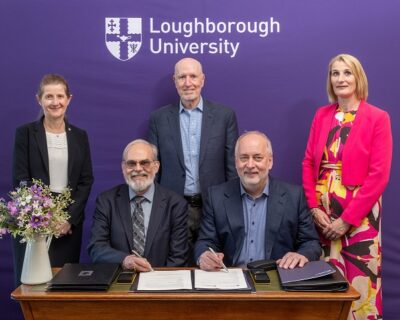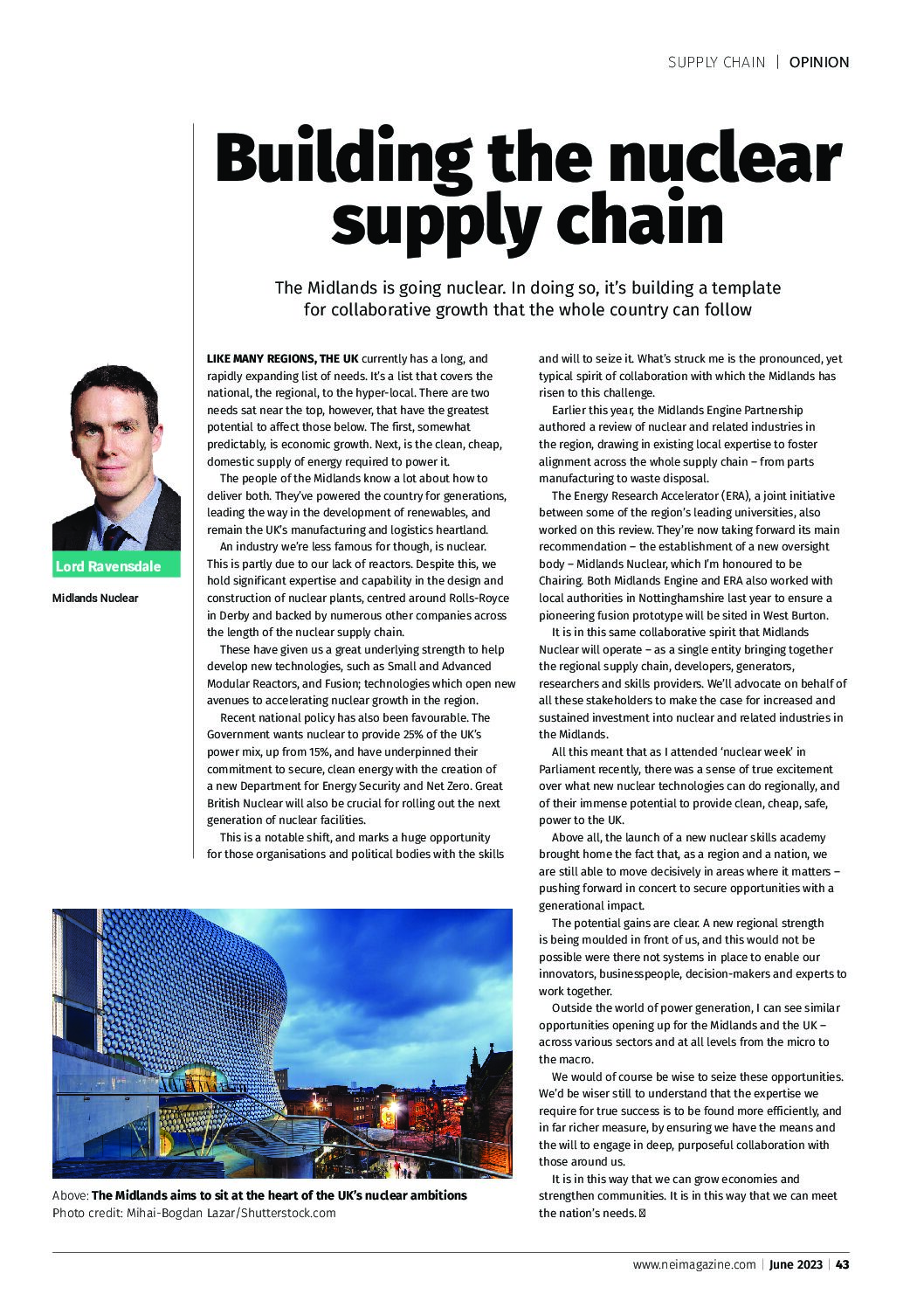This article was originally published in the June edition of Nuclear Engineering International.
The UK currently has a long, and rapidly expanding list of needs. It’s a list that covers the national, through the regional, to the hyper-local. There are those which are tangible, such as the need to improve our infrastructure or environment, and there are those which stem from our conversations, culture, and evolving national psyche.
There are two needs sat near the top, however, that have the greatest potential to affect those below. The first, somewhat predictably, is economic growth. Next, is the clean, cheap, domestic supply of energy required to power it.
Midlanders know a lot about how to deliver both. We’ve powered the country for generations and are leading the way in the development of renewables. We remain the UK’s manufacturing and logistics heartland.
An industry we’re less famous for though, is nuclear. This is partly due to our lack of reactors, which have traditionally been cooled by seawater, and therefore don’t lend themselves to a region with little spare coastline. Despite this, we hold significant expertise and capability in the design and build of nuclear plants, centred around Rolls-Royce in Derby and backed by numerous other companies across the length of the nuclear supply chain.
These have given us a great underlying strength to help develop new technologies, such as Small Modular Reactors, Advanced Modular Reactors, and Fusion Energy; technologies which open new avenues to accelerating nuclear growth in the region.
Recent national policy has also been favourable. The Government wants nuclear to provide 25% of the UK’s power mix, up from 15%, and have underpinned their commitment to secure, clean energy with the creation of the Department for Energy Security and Net Zero. Great British Nuclear will also be crucial for rolling out the next generation of nuclear facilities.
This is a notable shift, and marks a huge opportunity for those organisations and political bodies with the skills and will to seize it. What’s struck me is the pronounced, yet typical spirit of collaboration with which the Midlands has risen to this challenge.
Earlier this year, the Midlands Engine Partnership authored a review of nuclear and related industries in the region, drawing in existing local expertise to foster alignment across the whole supply chain – from parts manufacturing to waste disposal.
The Energy Research Accelerator (ERA), a joint initiative between some of the region’s leading universities, also worked on this review. They’re now taking forward its main recommendation – the establishment of a new oversight body – Midlands Nuclear, which I’m honoured to be Chairing. Both Midlands Engine and ERA also worked with local authorities in Nottinghamshire last year to ensure a pioneering fusion prototype will be sited in West Burton.
It is in this same collaborative spirit that Midlands Nuclear will operate – as a single entity bringing together the regional supply chain, developers, generators, researchers and skills providers. We’ll advocate on behalf of all these stakeholders to make the case for increased and sustained investment into nuclear and related industries in the Midlands.
All this means there is a sense of true excitement over what new nuclear technologies can do regionally, and of their immense potential to provide clean, cheap, safe, power to the UK.
Above all, the launch of a new nuclear skills academy brought home the fact that, as a region and a nation, we are still able to move decisively in areas where it matters – pushing forward in concert to secure opportunities with a generational impact.
The potential gains are clear. A new regional strength is being moulded in front of us, and this would not be possible were there not systems in place to enable our innovators, businesspeople, decision-makers and experts to work together.
Outside the world of power generation, I can see similar opportunities opening up for the Midlands and the UK – across various sectors and at all levels from the micro to the macro.
We would of course be wise to seize these opportunities. We’d be wiser still to understand that the expertise we require for true success is to be found more efficiently, and in far richer measure, by ensuring we have the means and the will to engage in deep, purposeful collaboration with those around us.
It is in this way that we can grow economies and strengthen communities. It is in this way that we can meet the nation’s needs.



